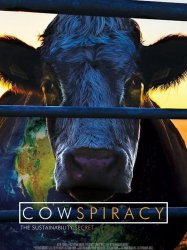The Tiger Next Door is a film of genre Documentary released in USA on 10 may 2009
The Tiger Next Door (2009)

If you like this film, let us know!
- Infos
- Casting
- Technical infos
- Photos
- Videos
- Film quotes
- Characters
- Music
- Awards
Released in USA 10 may 2009
Length 1h26
Genres Documentary
Themes Films about animals, Environmental films, Documentary films about animal rights, Documentary films about law, Political films, Documentary films about nature
Rating68%










The Tiger Next Door is a feature length 2009 documentary film directed and produced by Camilla Calamandrei.
Synopsis
The film is a character-driven documentary, which also reveals and explores a subculture of large wild animal keeping and breeding across the United States. The film starts from the premise that there are more tigers in private hands in the United States than there are roaming wild in the world. And, that it is legal in half of the United States to keep a tiger or other big cat. The Tiger Next Door follows the story of a man named Dennis Hill who has been keeping and breeding tigers from his backyard in Flat Rock, Indiana for over 15 years. When the film begins, Hill has recently lost his federal USDA license to keep and breed tigers, bears and cougars and the Indiana Department of Natural Resources is threatening to shut him down citing dangerous and inhumane conditions. Hill has five days remaining to upgrade his facilities and place all but three of his 24 tigers, three bears, six leopards and one cougar in alternate homes—before the Indiana DNR will consider issuing licenses for the remaining three animals.Comments
Leave comment :
Suggestions of similar film to The Tiger Next Door
There are 8962 with the same cinematographic genres, 12013 films with the same themes (including 44 films with the same 6 themes than The Tiger Next Door), to have finally 70 suggestions of similar films.If you liked The Tiger Next Door, you will probably like those similar films :

Planeat (2010)
, 1h12Origin United-kingdom
Genres Documentary
Themes Films about animals, Environmental films, Documentary films about animal rights, Documentary films about law, Documentary films about environmental issues, Documentary films about health care, Political films, Documentary films about nature
Rating71%






Fat, Sick & Nearly Dead (2010)
, 1h37Origin USA
Genres Documentary
Themes Films about animals, Environmental films, Documentary films about animal rights, Documentary films about law, Documentary films about environmental issues, Documentary films about health care, Films about disabilities, Political films, Documentary films about nature
Rating74%





Avec des dizaines de kilos en trop, chargé de stéroïdes et soufrant d’une maladie auto-immune particulièrement débilitante, Joe Cross est au bout du rouleau et n’a plus aucun espoir. Dans le miroir, il voit un homme de 140 kg avec des intestins plus gros qu’un ballon de football, un pied déjà dans la tombe et l’autre pas loin derrière. Avec des docteurs incapables de l’aider et une médecine sans solution, Joe se tourne vers le dernier espoir qui lui reste: la capacité de son corps à se guérir lui même. Il décide de se passer de mal-bouffe, et de ne plus consommer que des jus de fruits et légumes frais pendant 60 jours, tout en voyageant à travers l’Amérique. Durant ce périple de 1500 km Joe n’a plus qu’une idée en tête: se sortir de sa dépendance aux médicaments et vivre une vie saine et équilibré.

Earthlings (2005)
, 1h35Origin USA
Genres Documentary
Themes Films about animals, Environmental films, Politique, Documentary films about animal rights, Documentaire animalier, Documentary films about law, Documentary films about environmental issues, Documentary films about health care, Political films, Documentary films about nature
Actors Joaquin Phoenix
Rating85%





Covering pet stores, puppy mills, and animal profession, Earthlings includes footage obtained through the use of hidden cameras to chronicle the day-to-day practices of some of the largest industries in the world, all of which rely on animals. It draws parallels between racism, sexism, and speciesism.

Genres Documentary
Themes Films about animals, Environmental films, Documentary films about animal rights, Documentary films about law, Documentary films about environmental issues, Documentary films about health care, Political films, Documentary films about nature

The Whale (2011)
, 1h25Origin Canada
Genres Documentary
Themes Films about animals, Environmental films, Documentary films about animal rights, Documentary films about law, Political films, Documentary films about nature
Actors Ryan Reynolds
Rating80%





L'histoire vraie de Luna, une jeune épaulard sauvage qui tente de se lier d'amitié avec les gens sur la côte ouest accidentée de l'île de Vancouver.
 , 1h31
, 1h31Origin USA
Genres Documentary
Themes Films about animals, Environmental films, Politique, Films about the labor movement, Documentary films about business, Documentary films about animal rights, Documentaire animalier, Documentary films about law, Documentary films about environmental issues, Documentaire sur le monde du travail, Political films, Documentary films about nature
Rating80%





Cowspiracy est un documentaire d'importance majeure. Controversé, il se penche sur l'impact de l'élevage sur l'environnement. Kip Andersen, producteur et directeur du film, révèle des informations exclusives portant sur les politiques de groupes environnementaux comme Greenpeace, Sierra Club, Surfrider Foundation, and Rainforest Action Network en plus de statistiques alarmantes sur les impacts que génèrent la consommation de viande.

A Cow at My Table (1998)
, 1h30Directed by Jennifer Abbott
Origin Canada
Genres Documentary
Themes Films about animals, Environmental films, Documentary films about business, Documentary films about animal rights, Documentary films about law, Documentary films about environmental issues, Documentary films about politics, Films about cows, Political films, Documentary films about nature

Behind the Mask (2006)
, 1h12Genres Documentary
Themes Films about animals, Environmental films, Films about terrorism, Documentary films about animal rights, Documentary films about law, Documentary films about war, Documentary films about historical events, Documentary films about politics, Documentary films about terrorism, Political films, Documentary films about nature
Actors Chris DeRose, John Feldmann, Kevin Jonas
Rating74%






Best Friend Forgotten (2004)
, 1h40Directed by Julie Friedman Steele
Origin USA
Genres Documentary
Themes Films about animals, Environmental films, Documentary films about animal rights, Documentary films about law, Documentary films about cities, Political films, Documentary films about nature
Rating80%






At the Edge of the World (2008)
, 1h30Origin USA
Genres Documentary
Themes Films about animals, Environmental films, Seafaring films, Transport films, Documentary films about animal rights, Documentary films about law, Political films, Documentary films about nature
Rating72%





The documentary follows the events that took place during Operation Leviathan in early 2007. The RV Farley Mowat, captained by Paul Watson and the newly acquired MY Robert Hunter, captained by Alex Cornelissen meet in the Southern Ocean. As they are docked side to side, material is transferred from the Farley Mowat to the Robert Hunter to build a new helicopter deck. After some time the Robert Hunter is able to find the Nisshin Maru and engages it. In the course, one of the Sea Shepherd's small boats with two men on board gets lost. Both Sea Shepherd vessels must abandon the Nisshin Maru, which later takes part in the search for them. Finally after 9 hours, they are able to locate them and they are saved. Having lost the Nisshin Maru, the Robert Hunter later finds the Kaiko Maru, a spotter vessel for the Japanese whaling fleet. They engage the ship and during maneuvering through an ice field collide with each other, damaging both ships. As the Farley Mowat approaches, the Japanese vessel calls out a Mayday, stopping the Sea Shepherds from further engagement. As the film ends, we find out that there was a fire on the Nisshin Maru, killing one worker and ending the whaling season early due to damage to the ship.
 Connection
Connection